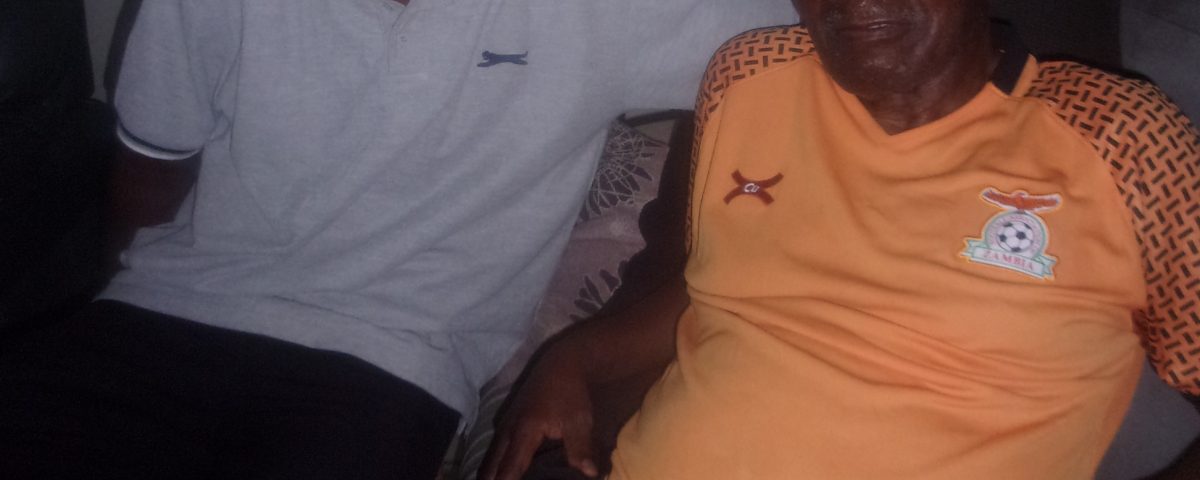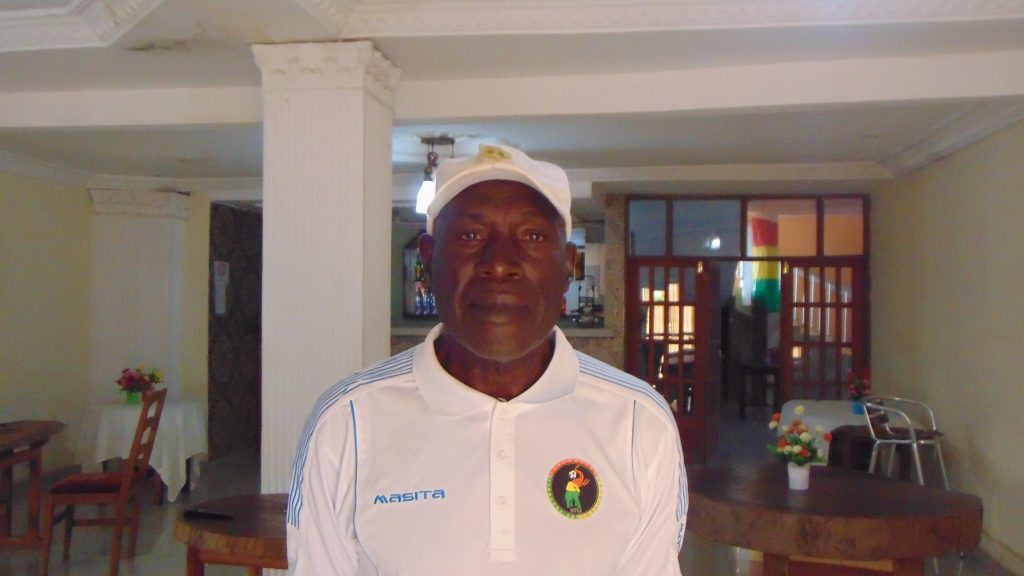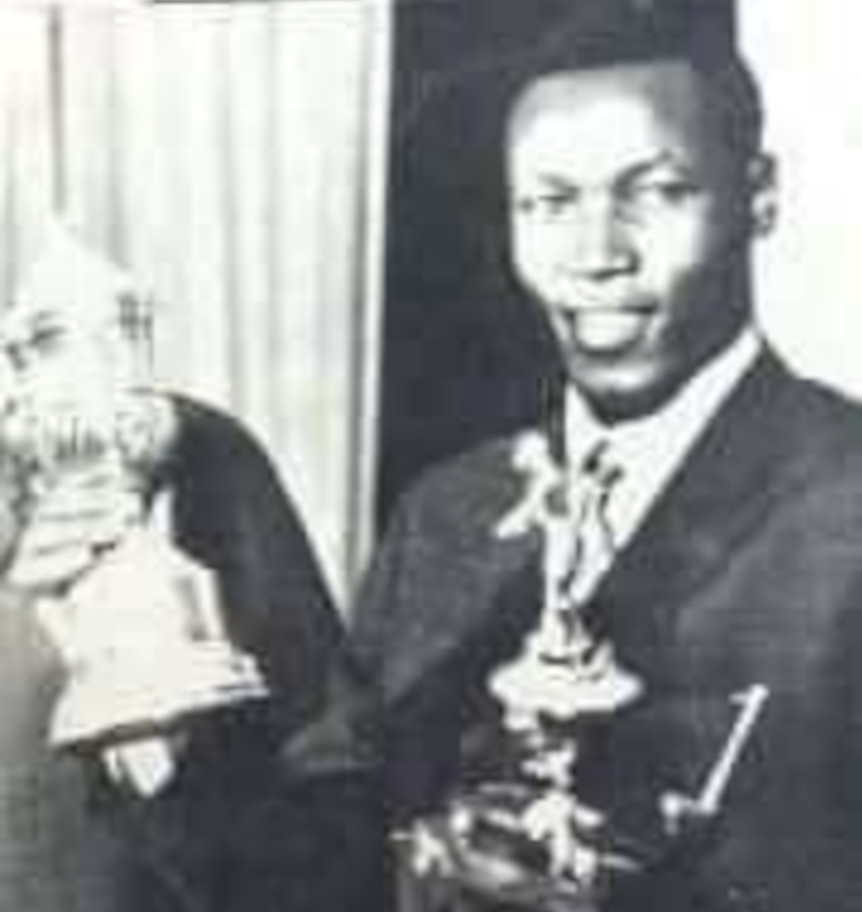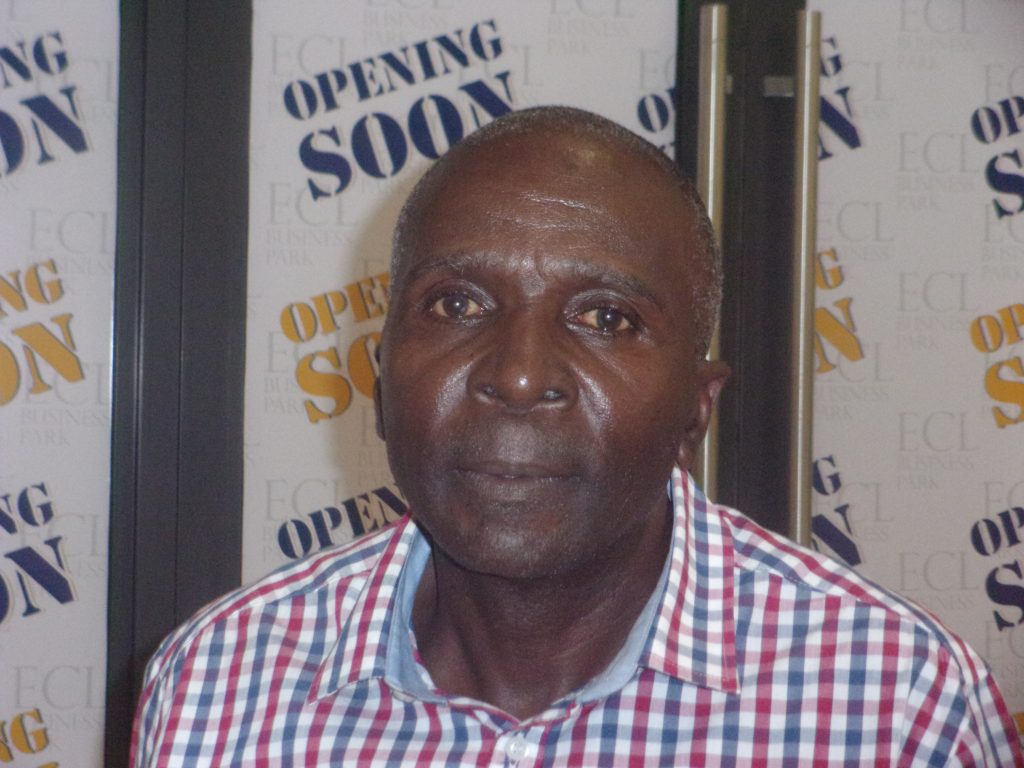Historic AFCON (Part Seven)

AFCON Countdown
January 3, 2024
CAF’s Ambassadors Programme Makes History
January 8, 2024Historic AFCON (Part Seven)

KODAK Digital Still Camera
By Satish Sekar © Satish Sekar (January 2nd 2024)
History Made
1972 was an odd year for African football. At the time the African Player of the Year Award was organised by France Football Magazine. It was won by Guinean great Chérif Soulemayne. He had a great year. His team, Hafia, won the African Cup of Champion Clubs and the national title too.

But that was a year where the top ten was odd. Only one of the AFCON-winning People’s Republic of Congo team made the top ten, and it was not the Man of the Match in the AFCON Final, Jean-Michel M’Bono, whose brace and an assist and four goals in the tournament – Mali’s Fantamady Keïta top-scored with five – was not enough to find him a place in the CAF Team of the Tournament. Nor was it the Best Player, François M’Pelé. It was Noël Minga Tchibinda.
An even stranger omission was Zambian and African great Godfrey Chitalu. He did not make ldthe top ten in a year where he set two African Cup of Champions Clubs records (the most goals by an individual in a match, 7, and the most in a tie, 9, against Lesotho’s champions, Majantja). He also scored the highest number of goals during a season, 107. And to cap it off he set the outstanding record of 116 goals in a calendar year (1972) a full 25 more than Argentinian great (possibly the greatest ever) Lionel Messi scored in 2012.

Incredibly that was not enough to place him in the top ten of African football for 1972. But Ndola – the city where the United Nations’ Secretary General Dag Hammarskjöld lost his life in a plane crash in September 1961 – witnessed a 6-1 mauling of Lesotho. Chitalu scored a brace, while Fred Mwila Snr grabbed a hat-trick and Joseph Mapulanga got the other. Zambia was getting ready to leave its mark on African football, and so was Zaire.
Qualification
Egypt and Congo qualified as hosts. The beaten finalists, Mali, went out to Guinea 6-7 on penalties after drawing 3-3 on aggregate in the second round of qualifiers. Cameroon was eliminated 2-3 on aggregate by Zaire at the same stage. Ghana failed to qualify for the second time in a row, beaten by 4 goals to nil by the Ivory Coast.
Zambia announced their intent in the first leg, beating Nigeria 5-1. The went through 7-4 – Simon Kaushi scored twice in the first leg and once in Nigeria. Uganda qualified at Kenya’s expense, but the biggest surprise was Mauritius going through on penalties against Tanzania after a 1-1 draw on aggregate.
The Tournament
Zambia was also making their debut in the finals of an AFCON. Uganda and la Côte d’Ivoire failed to qualify from Group A. Hosts, Egypt topped the group with maximum points. Zambia also qualified with one defeat and two wins. Ivory Coast finished bottom after a 2-2 draw with Uganda as they had a worse goal difference and therefore goal average.
The defending champions Congo was unbeaten in Group B, topping it with five points. Mauritius lost all three matches and Guinea paid for a 2-1 defeat to Zaire. They drew with Congo, but Zaire progressed in second place with two wins and a defeat.
In the knockout phase the late Pierre Ndaye Mulamba[1] emerged as the Best Player with braces in all the remaining matches – unusually three in this edition as it was the only one where the final required a replay. The late Joseph Mwepu Ilunga,[2] gave Egypt, which included Hassan Shehata,[3] the lead through an own goal. Egyptian legend Ali Abou Greisha doubled the lead before Ndaye pulled one back. Raoul Mantantu levelled before Ndaye’s second proved to be the winner.

Meanwhile, Zambia beat Congo 4-2 after extra time. Joseph Mapulanga gave Zambia the lead, which was added to by Bernard Chanda before François M’Pelé and André Mbouta took the match into extra time, during which Chanda completed his hat-trick to take Zambia to the final on debut.
In the third-fourth place match Egypt took their frustrations out on Congo, beating them 4-0 – Moustafa Abdou Ali Arfah opened the scoring. Shehata added a second. Abou Greisha scored the third and Shehata the fourth and last. That left the final, which as unique. Simon Kaushi opened the scoring. Ndaye equalised, sending the match into extra time. He gave Zaire the lead with just three minutes remaining, but Brighton Sinyangwe equalised as the match was about to end. That meant a replay was required. It was played two days later. Saad Gamar of Libya made history by being the only official to referee two finals in the same edition of AFCON on March 14th, two days after the first match.
Ndaye netted a brace in the replay to give Zaire their second AFCON title since 1968. The late Robert Kazadi Mwamba the Best Player in 1968 won his second AFCON title in 1968. The Zambians returned home to a hero’s welcome despite their defeat. Time would tell if their debut would also be the platform for them to develop into a force in African football. Strangely, despite his prowess, it was a poor tournament for Zambia’s greatest ever striker, Godfrey Chitalu. It was the beginning of the wilderness years for Chitalu, but he would return with a vengeance to become the most prolific African marksman in international football. And Ndaye’s record tally for an individual AFCON, 9, remains the record 50 years later. 1974 remains the only AFCON ever to go to a replay.
[1] Ndaye deserved better than he got from football. The Zaire team were feted as heroes for winning AFCON, and qualifying for the World Cup – the first sub-Saharan nation to do so – but things fell apart in West Germany as Zaire was thrashed by Yugoslavia and seemingly showed indiscipline against Brasil. The truth about that campaign came out later, but after their return they were treated as pariahs. Ndaye was invited to Tunisia as a special guest for the 1994 AFCON, but even that gesture backfired as on his return his home was robbed. He was left handicapped by the attack in which his son was killed. His death was wrongly announced at a later AFCON. Attempts to treat this African legend as he deserved came too late. He died in 2019 and CAF paid tribute at that edition, 45 years after his performances thrilled Egypt and Africa.
Another reason to celebrate this historic and unique final of an AFCON is that this is the 50th anniversary, and both teams have been drawn in the same group (Group F). On Match Day One for this group (Wednesday January 17th 2024) these teams will play each other in San Pedro’s Stade Laurent Pokou. We hope that the legends of the DRC and Zambia who contributed so much to Africa’s football legacy, or their families if deceased will be present at this match in particular as guests of CAF and receive the appreciation that they deserve.
[2] Mwepu is the player who belted a freekick given to Brasil upfield during the World Cup. It would later emerge that Zaire’s players had been swindled at that World Cup and were so demotivated that they were thrashed 9-0 by Yugoslavia. Years later it emerged that Ndaye was wrongly sent off for kicking the referee’s backside. The culprit was Mwepu.
[3] Shehata was a gifted player who became one of the greatest coaches Africa ever produced. He is the only coach to win three consecutive AFCON titles. The only other coach to retain the AFCON title and also win three titles, Charles Gyamfi told me in 2008 that he watched Shehata carefully and was impressed with his coaching. Shehata never managed to steer Egypt back to the World Cup, but he won the AFCON titles in 2006, 2008 and 2010. He remains an African legend.

